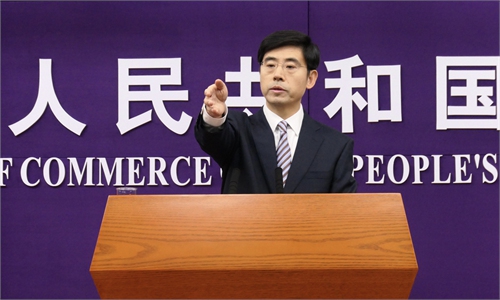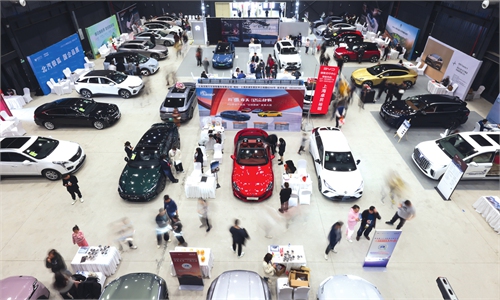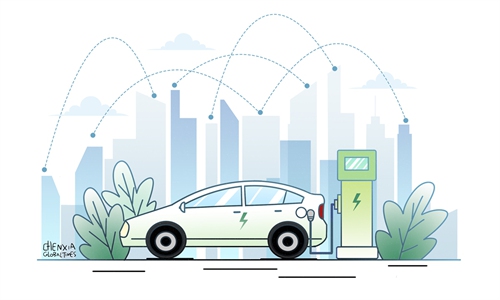Why can global electric vehicle manufacturers make big profits in the Chinese market?

Illustration: Liu Xiangya/GT
Several analysts have boosted their estimates for US electric carmaker Tesla's third-quarter delivery numbers, which are due next week, Bloomberg reported on Wednesday. All point to signs that sales are starting to pick up in China, a key area for Tesla and a major global market for electric vehicles, the report said.China is the world's largest new-energy vehicle (NEV) market - and it's growing. As the market grows, the development dividends it brings to multinational enterprises will become more apparent.
Tesla's third-quarter performance - which some analysts predicted might be Tesla's best quarter ever in China - offers a glimpse of China's growing NEV market that is of immediate significance to global electric vehicle manufacturers' profit-making ability. "This China strength comes at a very opportune time for Tesla, helping to offset ongoing weakness in the US and Europe," Dan Levy, who follows the company for Barclays, was quoted by Bloomberg as saying.
China's NEV market is booming. In July, about 878,000 NEVs were sold in China, surging 36.9 percent year-on-year, according to the China Passenger Car Association. NEVs reportedly outsold traditional fuel-powered passenger cars on a monthly basis, topping 50 percent in total vehicle sales for the first time. It is a milestone in China's auto market, which means NEVs are now mainstream in China.
Just one year earlier, in July 2023, China's NEV penetration rate was only 36.1 percent. The country's NEV market has been growing much faster than many Westerners might have imagined.
The fierce competition in China is one reason for the fast-growing market. Electric vehicle competition in the country is so fierce that manufacturers have to do everything possible to reduce costs, upgrade and improve product quality by using new technology, and even try to take market share from traditional fuel-powered vehicles.
China's fast-growing electric vehicle market in turn offers tangible dividends to individual enterprises, both domestic and foreign, through fair competition. The beneficiaries include not only US-based Tesla, but also automakers from all over the world.
European firms have been important participants in China's auto market. Those companies have gained remarkable returns over the past decades. Now, European automakers have been making unremitting efforts to tap the growing electric vehicle market in China. Their continuous investment showcases their confidence and optimism toward the Chinese market.
Some Western political elites support the adoption of protectionist measures against products from China when mutually beneficial cooperation and trade liberalization are desperately needed to promote the further development of the electric vehicle industry and the world's energy transformation.
They mistakenly believe that protectionist measures can help ease competitive pressures on Western automakers. In contrast, many Western companies have chosen to invest in China, participate in the intense competition and utilize China's advantages to boost their own competitiveness. Clearly, Western investors, not Western politicians, have made the right choice in this regard.
In 2023, China's sales of NEVs exceeded 9.49 million units, nearly 126 times compared with 2014 and accounting for more than 60 percent of the global market share. This figure ranked first globally for the ninth consecutive year, according to the People's Daily. It's hard for global automakers to ignore the Chinese market when talking about electric vehicles. It is widely believed that the Chinese NEV market will continue growing at a fast pace in the foreseeable future due to intense competition, continuous technological innovation and the nation's advanced manufacturing capabilities.
Compared with China, some Western countries are moving at a relatively slow pace toward auto electrification. If those Western countries can take a more open attitude toward fair competition, their electric vehicle industry will flourish, providing opportunities for foreign companies, while allowing their own automakers to achieve better performances in their home market.
The author is a reporter with the Global Times. bizopinion@globaltimes.com.cn



